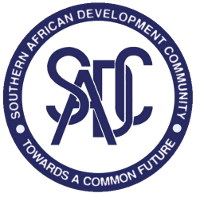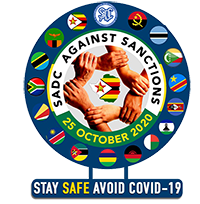Harare – The United States Ambassador to Zimbabwe Brian Nichols says SADC must play an “assertive” role in solving what he believes is a deepening crisis in Harare.
“This is an opportunity for (SADC) to stand up to the excesses that are taking place here in terms of human rights abuses. And this is an opportunity for SADC to promote a more prosperous region,” Nichols told TimesLIVE SA.
He went on: “We have had a couple of high-level meetings with President (Emmerson) Mnangagwa. From Washington, secretary of state for African Affairs, Tibor Nagy has met with President Mnangagwa twice — once on the margins of the UN General Assembly in 2018, and then last year at the African CEO Summit in Maputo. At that time we talked about our desire to have a stronger relationship.
“But that depended on this government pursuing strong and irreversible reforms and, unfortunately, we are waiting for many of those reforms still to take place.”
This was the first time Nichols spoke publicly after ZANU-PF acting spokesperson Patrick Chinamasa called him a thug in July.
Chinamasa’s remarks came after opposition parties across Southern Africa acted in concert to claim there was a human rights crisis in Zimbabwe.
Authorities in Harare have categorically stated that this organised onslaught was being choreographed by people like Nichols.
SADC, it seems, believes Harare’s narrative and regional leaders, at their last summit, reiterated that the US must lift its economic sanctions on Zimbabwe.
The sanctions, as we all know, were imposed because of Zimbabwe’s land reform programme and have nothing to do with alleged human rights abuses in their origin.
And they have been choking Zimbabwe’s economy for 20 years now, which has had a ripple effect on the entire region.
What the US does not tell the world is that it will only lift sanctions if Zimbabwe reverts to pre-1998 land tenure patterns, when about 6,000 whites controlled 87 percent of the prime farmland.
That land is now in the hands of 300,000 black families.
Politics of Land
Zimbabwe’s land reform programme presents a threat to Western interests, which is why people like Nichols are trying to bully SADC.
The West does not want to see countries like Namibia and South Africa democratising land ownership.
In essence, the sanctions were thus not solely directed at Zimbabwe but were indeed instituted as a threat to the whole SADC region.
Many Southern African countries fought liberation struggles with land ownership being at the core of their grievances.
Unresolved land issues present problems for liberation movements across SADC, and Western powers actively seek to discourage tenure reforms.
It is a double-edged sword for ruling parties: they are damned by their own people if they don’t do land reforms, and they are damned by the West if they institute land reforms.
This is particularly the case in Namibia and South Africa, and in Kenya a little further from home.
SADC’s Stand
The sanctions in Zimbabwe are meant to scare other nations away from land reforms, and thankfully SADC leaders are alive to this.
To better contextualise the matter, it is important to keep in mind the strategic importance of Zimbabwe to regional trade.
Zimbabwe provides a link to other countries when it comes to overland transportation of goods and provision of strategic services.
As such, SADC has taken an “assertive” role on Zimbabwe, but just not in the way Nichols and his ilk would prefer.
At their 39th Summit Heads of State and Government in Dar es Salaam in August 2019, SADC took an assertive move by declaring October 25 as the Anti-Sanctions Day, when the region will collectively call for the unconditional removal of the widely discredited embargo.
SADC Executive Secretary Dr Stergomena Tax, trading the bloc’s resolutions, said:
“Summit noted the adverse impact on the economy of Zimbabwe and the region at large of prolonged economic sanctions imposed on Zimbabwe and expressed solidarity with Zimbabwe, and called for the immediate lifting of sanctions to facilitate socio-economic recovery in the country.
“Summit declared the 25 October as the date on which SADC member states can collectively voice their disapproval of the sanctions through various activities and platforms until the sanctions are lifted.”
Then at this year’s summit, SADC reinforced this stand.
All too often, people disparage SADC and claim that it is ineffective. We could easily get into a list of the bloc’s success stories and argue the matter all day long.
But for present purposes, suffice to say when it comes to advancing the common interests of Southern Africa, not of the West, SADC leads the way in showing that we are stronger together.
This is the kind of regional solidarity that will take Southern Africa forward.





